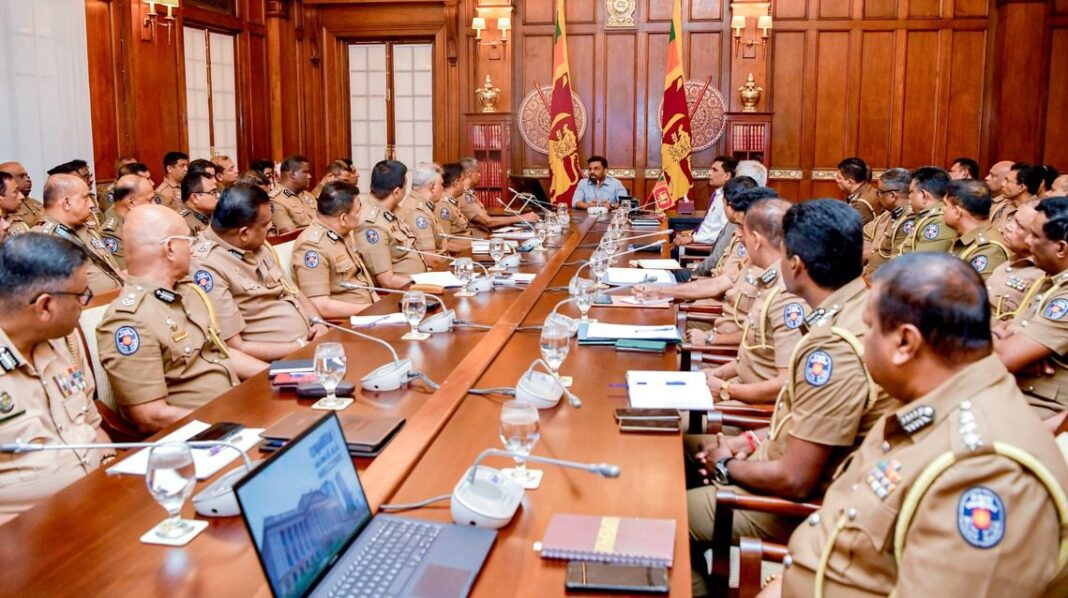The JVP has long been recognized as a political force that strongly advocated for making the police an independent institution, free from political interference.
This stance was most evident during the 1999–2001 coalition government with Chandrika Kumaratunga, when the JVP played a key role in bringing about the 17th Amendment to the Constitution and in establishing the Constitutional Council and the Independent Commissions under it. The JVP deserves significant credit for this progress.
Today, the ruling power in the country is held by the JVP-led NPP (National People’s Power), which is essentially an extension of the JVP. The only major difference is that the government now includes figures like Prime Minister Harini Amarasuriya and Justice Minister Harshana Nanayakkara, who have publicly stated that they do not fully agree with the political philosophy of the JVP’s brand of social democracy, and who instead lean toward liberal politics.
Even the President has publicly acknowledged that some individuals within the administration do not align with his political philosophy, which may indicate internal inconsistencies within this governing alliance. Meanwhile, Minister Lal Kantha, a prominent JVP figure and powerful cabinet member, has admitted that he personally does not know the majority of current NPP parliamentarians, suggesting that they may include members formerly aligned with the UNP, Pohottuwa, and SLFP.
Given these circumstances, it seems increasingly likely that the current government is drifting away from its original JVP political ideology and toward the kind of “dirty politics” (majara politics) that the public rejected in the last presidential and general elections.
A recent incident illustrates this troubling shift. An NPP Member of Parliament from Kalutara District allegedly threatened a police sergeant over the phone after the officer arrested a known illegal liquor smuggler—reportedly a friend of the MP. As a result, the OIC of Welipenna Police Station was removed from his post and transferred to an unspecified position at Elpitiya Police Station, reportedly due to political pressure.
What is most disturbing is that, despite widespread media coverage, the Independent Police Commission approved the transfer based on a recommendation from the Acting IGP. This has raised serious concerns—not just among police officers, but also among citizens who still hope for a just and independent law enforcement system. The independence and credibility of the Police Commission are now in question.
This punitive transfer sends a dangerous message to police officers across the country:
“Don’t take action—see what happens when you do.”
It also erodes the professional confidence that the Independent Police Commission is there to protect officers who carry out their duties properly. The negative impact of this incident on police morale—and on public trust—is deeply troubling.
What the government should have done, in keeping with its election promises of a civilized and transparent political culture, was to conduct an impartial and transparent investigation, publish the findings, and take legal action based on the evidence—regardless of whether the wrongdoing was on the part of the police or the politician. Instead, justice appears to have been hurriedly suppressed.
Mr. President, Minister of Public Security, and my dear Deputy Minister Watagala—whom I believe understands the police service well—I conclude this note with a sincere appeal:
Please do not let the hope for a “new political culture,” which you’ve passionately spoken about on public platforms, become just another unanswered question.
(Translation of a FB post by Priyantha Jayakody . Translated using artificial intelligence and checked against the original post by Sri Lanka Brief)
